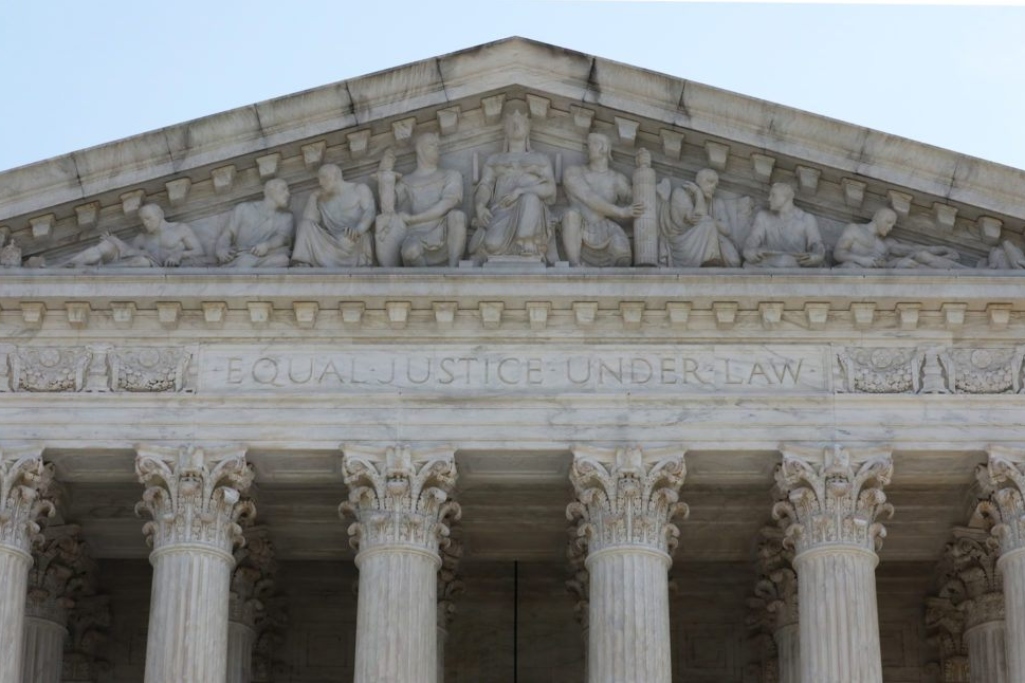The U.S. Senate stands in the way of a sweeping abortion rights bill becoming law, and Southern Baptist and other pro-life advocates have reasons to be optimistic that body will prevent its enactment.
The House of Representatives approved the Women’s Health Protection Act (H.R. 3755) Sept. 24 in a nearly party-line vote, 218-211. While all Republican members opposed the measure, every Democrat except Rep. Henry Cueller of Texas voted for it. President Joe Biden, meanwhile, strongly endorsed the proposal in a Sept. 20 statement from his administration.
The legislation appears likely to hit a roadblock in the Senate, however. That 100-member chamber is divided equally by party, and 60 votes would be needed to send the bill to the White House apart from an effort to nullify the filibuster. If eradicating the filibuster were successful, the move would result in only a majority being required for passage of the measure. That procedural step, however, does not have the support even of all Democratic senators, and no GOP member has expressed support for the abortion-rights proposal.
The Women’s Health Protection Act would go beyond the Supreme Court’s 1973 Roe v. Wade decision that legalized abortion by prohibiting federal and state regulations of the procedure that are now permitted by the justices, pro-life advocates point out.
Southern Baptist public policy specialist Chelsea Sobolik urged the Senate “to ignore this inhumane piece of legislation.”
“This bill looks as if Planned Parenthood authored it, and it ought to shock and grieve our consciences,” said Sobolik, director of public policy for the Southern Baptist Ethics & Religious Liberty Commission (ERLC). “This legislation is so extreme it eliminates all pro-life protections, removes any restrictions on abortion and allows for a preborn life to be wiped out up to the moment of birth.
“The role of government should be to protect these vulnerable children, but this bill proposes instead to empower the predatory abortion industry,” she said in written comments.
Catherine Glenn Foster, president of Americans United for Life, said the legislation “would effectively ban all lifesaving, state protections” for women and “our youngest, preborn children,” including those upheld by the Supreme Court. It would “invalidate hundreds of constitutionally sound state laws” that protect unborn babies, she said in a written release.
Sen. Ben Sasse, R-Neb., however, sought to assure pro-life Americans regarding the chances of Senate passage of what he called “the most aggressive pro-abortion bill ever.” After the House vote, Sasse said in a written statement, “These scorched-earth tactics are dead on arrival in the Senate.”
The congressional effort to pass the Women’s Health Protection Act follows actions by the Supreme Court that have heightened concerns among abortion-rights advocates.
The justices permitted a Texas law that bans abortion when a fetal heartbeat can be detected to go into effect Sept. 1. The high court already had agreed to rule in its next term on a Mississippi law that prohibits the abortion of an unborn child whose gestational age is more than 15 weeks. Mississippi, the ERLC and other pro-life organizations have filed briefs urging the Supreme Court to reverse Roe and the 1992 Planned Parenthood v. Casey ruling in the case, which will be argued Dec. 1. In Casey, the high court affirmed Roe but permitted some state regulation of abortion.
The bill’s language would annul, according to the National Right to Life Committee (NRLC), pro-life laws in the states that have such requirements as:
- A waiting period for a woman before an abortion;
- Information for a woman considering abortion regarding her unborn child and alternatives to the procedure;
- A ban on sex-selection abortion;
- A prohibition on abortion after 20 weeks based on evidence the child feels pain by that point.
The legislation also would rescind most federal restrictions on abortion, as well as conscience protections for health-care workers and most, or maybe all, bans on government funding of the procedure, NRLC reported.
Abortion-rights organizations applauded the House’s approval of the expansive proposal.
Alexis McGill Johnson – president of the country’s No. 1 abortion provider, the Planned Parenthood Federation of America – called the vote “an important step in protecting the right to access an abortion in the U.S, and halting the wave of harmful and deeply unpopular abortion restrictions across the country.”
The Senate version of the bill has 48 sponsors, all Democrats. Sens. Robert Casey of Pennsylvania and Joe Manchin of West Virginia are the lone Democrats to refuse to sponsor the measure. Republican pro-choice Sen. Susan Collins of Maine told the Los Angeles Times she will not vote for the proposal because it goes “way beyond” protecting abortion rights in federal law.
Senate rules require 60 votes to invoke cloture, as the procedural move is known, and thereby cut off a filibuster so a vote on a bill can occur. Among the 50 Senate Democrats, Manchin and Sen. Kyrsten Sinema of Arizona have expressed their opposition to eliminating the filibuster.
(EDITOR’S NOTE – Tom Strode is Washington bureau chief for Baptist Press.)


